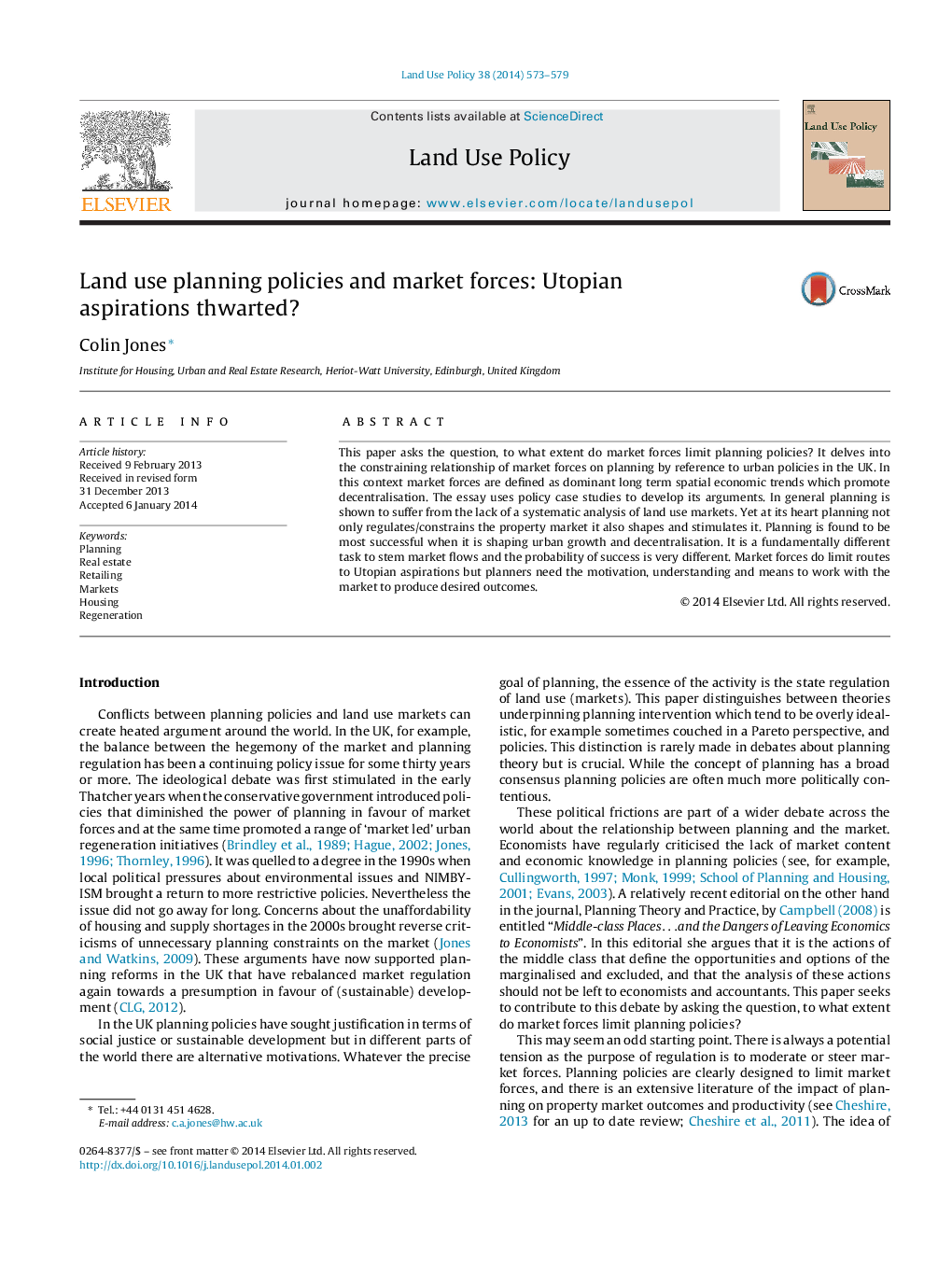| Article ID | Journal | Published Year | Pages | File Type |
|---|---|---|---|---|
| 6548846 | Land Use Policy | 2014 | 7 Pages |
Abstract
This paper asks the question, to what extent do market forces limit planning policies? It delves into the constraining relationship of market forces on planning by reference to urban policies in the UK. In this context market forces are defined as dominant long term spatial economic trends which promote decentralisation. The essay uses policy case studies to develop its arguments. In general planning is shown to suffer from the lack of a systematic analysis of land use markets. Yet at its heart planning not only regulates/constrains the property market it also shapes and stimulates it. Planning is found to be most successful when it is shaping urban growth and decentralisation. It is a fundamentally different task to stem market flows and the probability of success is very different. Market forces do limit routes to Utopian aspirations but planners need the motivation, understanding and means to work with the market to produce desired outcomes.
Related Topics
Life Sciences
Agricultural and Biological Sciences
Forestry
Authors
Colin Jones,
